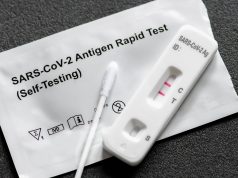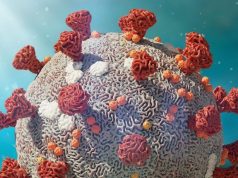Adults using low-dose aspirin for primary or secondary prevention of CVD had lower likelihood of COVID-19 infection versus nonusers
WEDNESDAY, March 17, 2021 (HealthDay News) — Aspirin use for cardiovascular disease prevention may also reduce the likelihood of COVID-19 infection, according to a study recently published in the FEBS Journal.
Eugene Merzon, M.D., from Leumit Health Services in TelâAviv, Israel, and colleagues used data from the Leumit Health Services database to assess outcomes among COVID-19-positive patients (Feb. 1, 2020, to June 30, 2020) using preinfection treatment with low-dose aspirin for primary and secondary prevention of cardiovascular diseases versus nonusers.
The researchers found that aspirin use was associated with a lower likelihood of COVID-19 infection versus nonuse (adjusted odds ratio, 0.71). While aspirin users were older, presented a lower body mass index, and showed a higher prevalence of hypertension, diabetes, and chronic obstructive pulmonary disease than aspirin nonusers, COVID-19 disease duration among aspirin users was significantly shorter versus aspirin nonusers. A higher proportion of patients surviving hospitalization were treated with aspirin, compared to the one patient who died, but this difference was not significant.
“This observation of the possible beneficial effect of low doses of aspirin on COVID-19 infection is preliminary but seems very promising,” a coauthor said in a statement.
Abstract/Full Text (subscription or payment may be required)
Copyright © 2020 HealthDay. All rights reserved.








